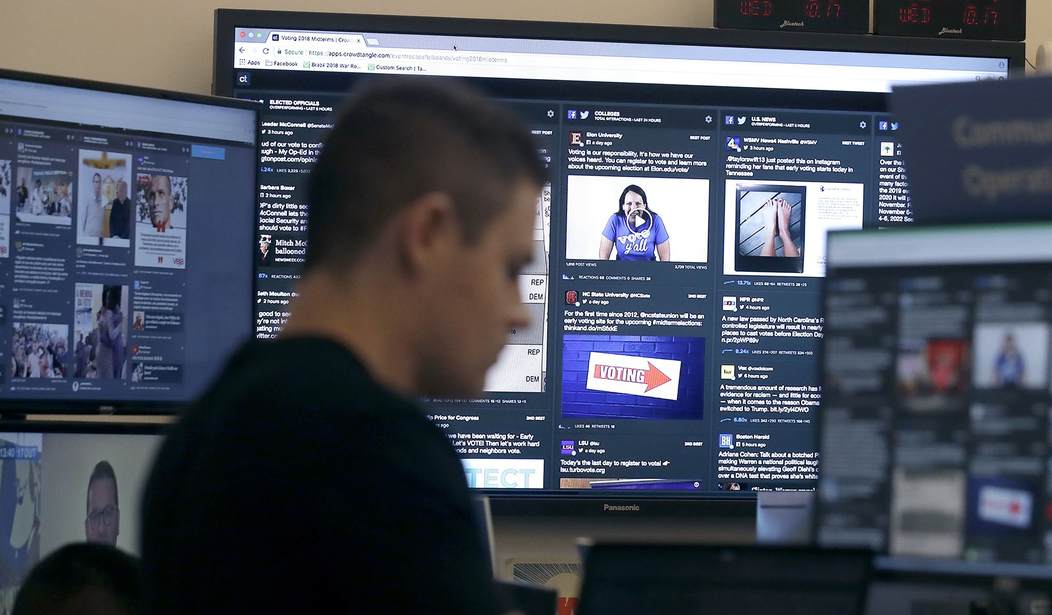On the heels of what looks like blatant partisan censorship of legitimate news sites on the part of huge social media companies, the debate over free speech online has never been more contentious for Americans. Those fears are even more understandable following a report from The Epoch Times that reads like an anatomy of censorship. It details how the Chinese state pays online “trolls” to manipulate public opinion about a news report unfavorable to government following food contamination and an outbreak of a novel illness.
And the tactics look uncomfortably familiar.
The article, using internal documents from Chinese “censorship authorities,” purports to show how paid online “trolls” responded to an outbreak of African Swine Fever in a food product by writing “social media posts praising the authorities” and removing posts that were critical.
Information about the contaminated dumplings quickly spread on Chinese social media platforms, forcing authorities to publicly admit the incident.
…
The Luoyang Cyberspace Administration reported to the city government how hired online trolls tried to manipulate public opinion following the Sanquan food scandal.
One troll with the online moniker “Qingqi Suoyou” posted: “Since the [world’s] first ASF outbreak about one hundred years ago, no human being was infected by the ASF virus. So, the ASF virus won’t affect pork products. You can eat the meat and related products.”
Another hired troll named “Ruguo” posted: “The ASF virus will be killed at high temperatures. You can eat [the dumplings] by cooking it completely.”
Others tried to downplay the news as rumors. A hired troll with the online name “Qinghe” posted: “Don’t believe in the rumors and don’t spread the rumors. All large enterprises can trace the source of the raw materials that they used.”
Some tried to use the opportunity to praise authorities.
The troll “Kantaiyang” posted: “Our country always treats food safety as something very important. I believe the government will give our people an answer [about the virus’ source].”
“Hai’ai” posted: “We cannot doubt that China’s State Food and Drug Administration and Sanquan Food are proactive when facing the issue. The most important thing is solving the problem. We shouldn’t question things and should wait quietly.”
Other trolls — who were paid 11 yuan or about $1.62 per post — spent time removing social media posts that ran counter to a narrative that said officials in the city affected were doing a good job controlling the outbreak.
American citizens aware of social media efforts in the last week to squash the sordid and sad tale of Hunter Biden, or the mainstream press’ years long tendency to use social media to promote preferred narratives friendly to their partisan leanings — while using their large followings to downplay news reports that run counter to those narratives — could hardly be blamed for feeling a bit queasy reading that inventory of Chinese censorship tactics. They’re a bit too close to home.
China, at the very least, is more open about propaganda and narrative control. Chinese citizens expect it. In America, by contrast, internet trolls doing the same work are paid much, much more and are often considered respected journalists and business leaders. And American citizens are way behind their Chinese counterparts in only slowly coming around to just exactly how much — and for how long — they’ve been duped.













Join the conversation as a VIP Member